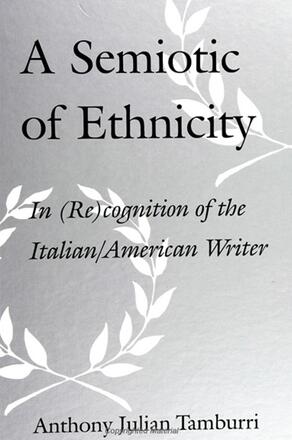
A Semiotic of Ethnicity
In (Re)cognition of the Italian/American Writer
Alternative formats available from:
Reexamines the notion of the "hyphenate writer," and offers a specific reading strategy that we may consider the Italian/American writer in the age of semiotics, poststructuralism, and the like.
Description
Using semiotics as a theoretical foundation, this book reexamines the notion of the hyphenate writer. It argues for an analogous set of categories no longer chronologically or generationally based, but cognitively based, so that the traditionally considered "first-stage" or first-generation hyphenate writer now figures as an "expressive" writer who is not necessarily part of the immigrant or first American-born generations. He or she may actually belong to a later generation and write about his or her ethnicity with those characteristics more readily associated with the first-stage hyphenate writer.
Anthony Julian Tamburri is Professor of Italian and Comparative Literature at Purdue University. He is the author of Of Saltimbanchi and Incendiari: Aldo Palazzeschi and Avant-Gardism in Italy; To Hyphenate or not to Hyphenate: the Italian/American Writer: Or, An Other American; and Per una lettura retrospettiva. Prose giovanili di Aldo Palazzeschi. He is coeditor (with Paolo A. Giordano) of Beyond the Margin: Readings in Italian Americana; (with Mary Jo Bona) of Italian Americans and the Media; (with Paolo A. Giordano and Fred L. Gardaphe) of From The Margin: Writings in Italian Americana; and editor of Fuori. Essays By Italian/American Lesbians and Gays.
Reviews
"Tamburri makes crucial connections among the various generations of Italian/American writers, that, while rooted in the most authoritative scholarship, also provoke us to 'look forward' as to how we might see Italian/American literature in the future. Tamburri's work opens doors to an understanding of Italian/American literature that university students and other students in the field should pass through." — Justin Vitiello, Temple University
"This book brings to our literary attention writers not often discussed, and it considers them within the larger domain of ethnic subcultures in relation to a 'dominant' American culture." — Joseph Natoli, author of Speeding to the Millennium: Film and Culture 1993-1995